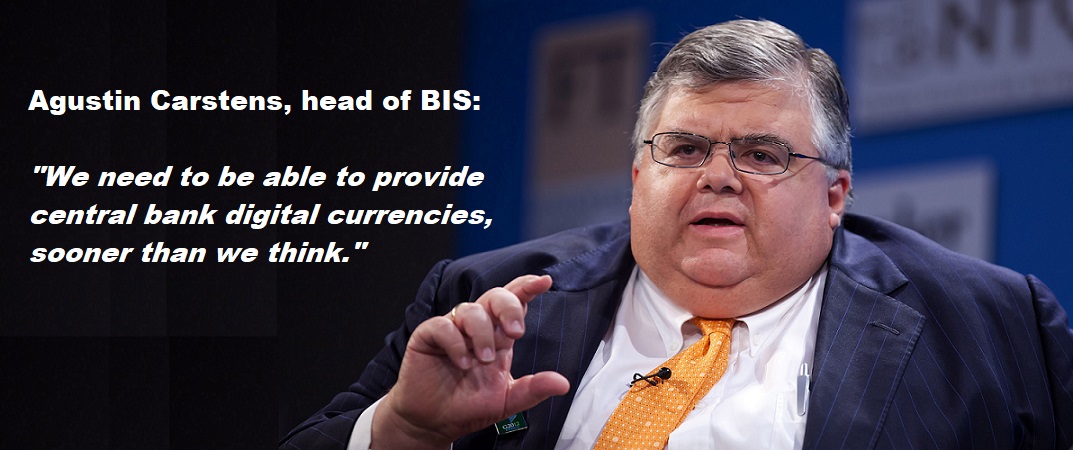
Global central banks may have to issue their own digital currencies sooner than expected, the general manager of the Bank for International Settlements has said, after Facebook recently unveiled plans to create its own stablecoin.
Agustín Carstens, who heads the BIS, known as the central bankers’ bank, told the Financial Times that the organisation supported the efforts of the world’s central banks in creating digital versions of state currencies. “Many central banks are working on it; we are working on it, supporting them,” Mr Carstens told the Financial Times. “And it might be that it is sooner than we think that there is a market and we need to be able to provide central bank digital currencies.”
A number of central banks, including Sweden’s Riksbank, are working on their own versions of digital currencies, which would work by offering the public direct access to central bank money. At present, only private sector lenders can borrow directly from monetary authorities.
Central bankers, including Mr Carstens, have been dismissive of the first wave of cryptocurrencies, viewing the likes of bitcoin and ethereum as speculative instruments that cannot be described as money due to the volatility of their value against the most widely used state currencies, such as the US dollar and the euro.
However Facebook’s plans to create Libra — a stablecoin with its value pegged to a basket of as yet unspecified currencies backed by as yet unspecified assets — have attracted attention from officials, including at the Basel-based BIS.
The BIS said in an extract on digital currencies, taken from its annual report, that coins backed by tech giants could “rapidly establish a dominant position” in global finance and pose a potential threat to competition, stability and social welfare.
“The issue is how will the currency be used? Will there be discovery of information, or data that can be used in credit provision and how will data privacy be protected?” Mr Carstens said. “A very simple way to regulate this is to start with anti-money laundering rules. That is a very immediate and very obvious concern.”
However, Mr Carstens acknowledged that developments in the rest of the currency market would influence the extent to which central banks pursued their stablecoin projects.
“There needs to be evidence for demand for central bank digital currencies and it is not clear that the demand is there yet,” he said. “Perhaps people can do what they want by using electronic wallets provided by banks or fintech companies. It depends on the development of payment systems.”
Banking 4.0 – „how was the experience for you”
„To be honest I think that Sinaia, your conference, is much better then Davos.”
Many more interesting quotes in the video below: